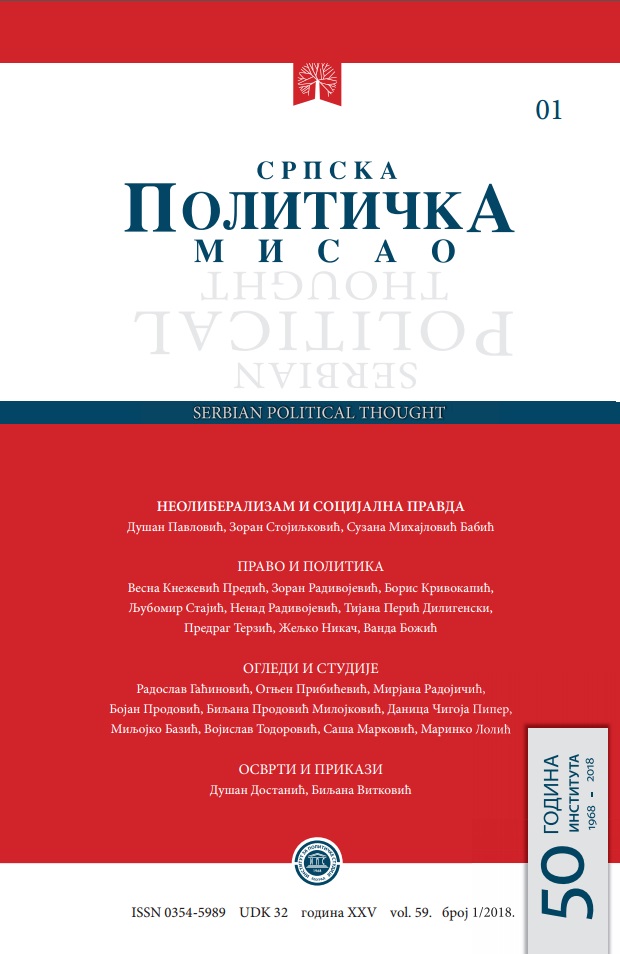Правда и моћ: поуке међународног кривичног трибунала за бившу Југославију
Justice and Power – Lessons of the International Criminal Tribunal for the Former Yugoslavia
Author(s): Mirjana Radojičić Subject(s): International Law, Human Rights and Humanitarian Law, Law and Transitional Justice
Published by: Институт за политичке студије
Keywords: International Criminal Tribunal for the former Yugoslavia; war crimes; justice; power; geopolitics of the Western Balkans
Summary/Abstract: The subject of this text is the legacy of the International Criminal Tribunal for the former Yugoslavia viewed in the light of the fact that this judicial institution is soon to terminate its several times extended mandate. The author deals with many aspects of this institution’s decades-long work, which clearly testify to the prevalence of the political motives of its founders and financiers over the legal and moral ones. This, above all, refers to the Tribunalʼs punitive policy, of which the author speaks in a “hard” and unrelenting language of numbers. She goes on to treat the practical and political repercussions of the Tribunalʼs aforesaid policy, bringing them into a relation with the current geopolitical redesigning of the area of the post-Yugoslav Western Balkans. She then continues to thematize the problem of international reconciliation, to which, declaratively speaking, the Tribunal was meant to contribute. The author presents arguments in favour of the stand that wars do not end in order that the conflicting sides should reconcile with one another although, upon termination of conflicts, they mostly do that, sooner or later. What occupies a much more higher position on the agenda of national goals in the post-war period is the preservation of what has been acquired through war and the decriminalization of the manner in which that was done. The reconciliation of the nations which were at war until recently, even if it happens, is rather an outcome of the conformist and compromissory nature of human life as such than of any external intervention which is the least reminiscent of those applied by the Tribunal. The author concludes that by intervening into the inter-ethnic relations in the territory of the former joint state, the Tribunal has created more conditions for the renewal of conflicts in the near or distant future than for a stable and permanent peace in a devastated and blood-soaked region.
Journal: Српска политичка мисао
- Issue Year: 2018
- Issue No: 1
- Page Range: 213-224
- Page Count: 12
- Language: Serbian

